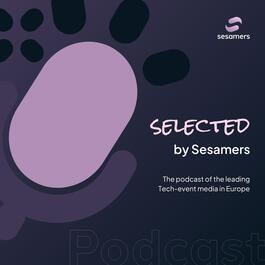
Henrietta’s Journey from FMCG to FoodTech VC Henrietta Hearth’s path to venture capital began with a deep interest in nutrition and public health. After realizing the limitations of public health campaigns, she pivoted to the corporate world, launching over 100 products at firms like Danone and L’Oréal. Her transition into venture capital came via an MBA and a desire to drive meaningful change in the food ecosystem, ultimately leading her to Big Idea Ventures where she set up their European operations in Paris.Why Alternative Protein Is Still a VC Opportunity Henrietta explains that 30% of global emissions are linked to food, especially meat and dairy, making alternative protein a key climate solution. But beyond sustainability, alt-proteins tap into health and ethical concerns too. While the sector has suffered from overvaluation, like the now-cautionary tale of Beyond Meat, Henrietta argues there's still strong potential if companies focus on taste, affordability, and customer satisfaction.Cell-Based Meat and AI: What’s Actually Working Some of the most promising innovations in food tech today combine scientific rigor with user-centric design. Henrietta points to Gourmey, a cell-based foie gras startup in Big Idea Ventures’ portfolio, as a standout example of aligning tradition, taste, and ethics. She also highlights the emerging role of AI in food R&D, citing companies like New Wave Biotech, which are using machine learning to speed up product development, especially in precision fermentation.The Case for Going Beyond Hype While Henrietta sees AI as a valuable tool, she urges founders and investors alike not to get lost in the buzz. Real impact still comes from solving core problems, like child malnutrition or the lack of innovation in infant nutrition. She expresses a desire to see more startups tackling urgent global issues, particularly in underserved markets, where food tech can truly make a life-or-death difference.Building with Customers, Not Just Capital Henrietta stresses the importance of founders building companies around real customer problems, not just investor narratives. Many early-stage companies focus too much on raising funds instead of validating product-market fit. Whether the end customer is a family or a large food corporation, the key to long-term success is solving meaningful, scalable problems. Be sure to follow Sesamers on Instagram, LinkedIn, and X for more cool stories from the people we catch during the best Tech events!
From "Selected - The Sesamers Podcast"


Comments
Add comment Feedback